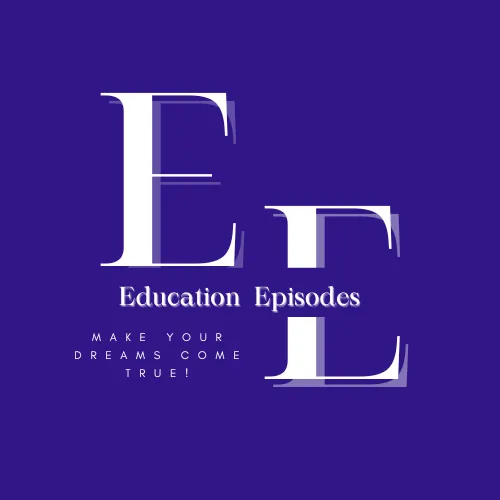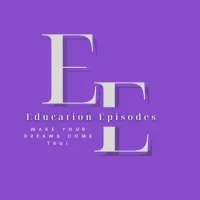Education Episodes

language test wars
Introduction:
In the increasingly globalized world of education, language proficiency is a foundational element for individuals seeking to pursue studies abroad. However, the pathway to proving language proficiency is fraught with challenges and complexities, with the landscape shaped by what has come to be known as the "language test wars."
This article embarks on an in-depth exploration of these wars, dissecting the key battlegrounds and ramifications for students and stakeholders navigating the realm of abroad studies.

1. Validity and Reliability:
At the forefront of the language test wars lies the battleground of validity and reliability. Here, stakeholders meticulously scrutinize the design, methodology, and efficacy of standardized language tests. Questions abound regarding the extent to which these tests accurately assess a test-taker's true language proficiency. Critics argue that certain tests may prioritize rote memorization and test-taking strategies over genuine language competency.
Moreover, concerns persist regarding the cultural bias inherent in some tests, potentially disadvantaging non-native English speakers or those from diverse linguistic backgrounds. As institutions and authorities grapple with these issues, the quest for a truly valid and reliable language assessment tool remains ongoing.
2. Accessibility and Affordability:
A fundamental concern in the language test wars revolves around accessibility and affordability. While standardized tests aim to provide an equitable means of assessing language proficiency, socioeconomic disparities often tilt the scales against marginalized communities. The financial burden associated with test registration fees, preparation materials, and travel expenses to testing centers can present insurmountable barriers for individuals from low-income backgrounds.
Furthermore, the geographical distribution of testing centers may disproportionately disadvantage rural or remote populations, exacerbating disparities in access to educational and employment opportunities. As such, the quest for equitable access to language testing remains a pressing issue in the discourse surrounding abroad studies.
3. Equivalency Debates:
The recognition and equivalency of standardized test scores serve as a battleground where institutions and authorities clash in the language test wars.
With an array of competing tests available, ranging from the TOEFL and IELTS to Cambridge English exams and the Pearson Test of English, determining which scores hold universal recognition poses a formidable challenge. Universities, immigration agencies, and employers often exhibit divergent preferences, leading to inconsistencies in the acceptance of test results.
Moreover, questions arise regarding the comparability of scores across different tests, with debates over whether a certain score on one test equates to the same level of proficiency as another. The lack of standardization in equivalency frameworks further complicates matters, leaving test-takers navigating a convoluted landscape of recognition and acceptance criteria.
4. Technological Advancements:
In the digital age, technological innovations have reshaped the terrain of language testing, introducing new dynamics to the battlefield. Computer-based testing and online proctoring have emerged as alternatives to traditional paper-based exams, offering convenience, flexibility, and scalability. However, these advancements also raise concerns regarding security, test integrity, and the equitable distribution of testing resources. As the digital divide persists, marginalized communities may find themselves further marginalized in the transition to online testing platforms. Moreover, the rapid pace of technological innovation necessitates ongoing adaptation and refinement of testing methodologies to ensure the validity and reliability of assessments in an increasingly digital landscape.
5. The Test Preparation Industry:
Amidst the tumult of the language test wars, the test preparation industry stands as a formidable force, offering a myriad of resources and services to bolster test-takers' chances of success. From textbooks and practice exams to online courses and private tutoring sessions, a plethora of options abound for individuals seeking to enhance their language proficiency and achieve desirable test scores. However, the proliferation of test preparation materials also raises ethical questions regarding fairness, equity, and the commodification of language proficiency. Critics argue that access to quality preparation resources may be contingent upon socioeconomic status, perpetuating existing disparities in educational attainment and opportunities. Moreover, the emphasis on test preparation may incentivize rote memorization and test-taking strategies at the expense of genuine language acquisition and communication skills
Conclusion:
In conclusion, the language test wars represent a multifaceted struggle for dominance in the realm of abroad studies. Validity, accessibility, equivalency, technological advancements, and the test preparation industry all shape the landscape of language testing, with far-reaching implications for students, institutions, and societies at large. As stakeholders navigate the complexities of language testing, the quest for fair, reliable, and inclusive assessment tools remains paramount. In an ever-changing world, the ability to effectively communicate across linguistic and cultural boundaries remains essential for fostering global understanding, collaboration, and mobility. Thus, the language test wars serve as a microcosm of broader debates surrounding education, equity, and the pursuit of opportunity in an interconnected world.

Contact Us,
What We Do ?
Consultancy for studying abroad
Abroad education services
© Copyright 2024 Education Episodes. All rights reserved.
